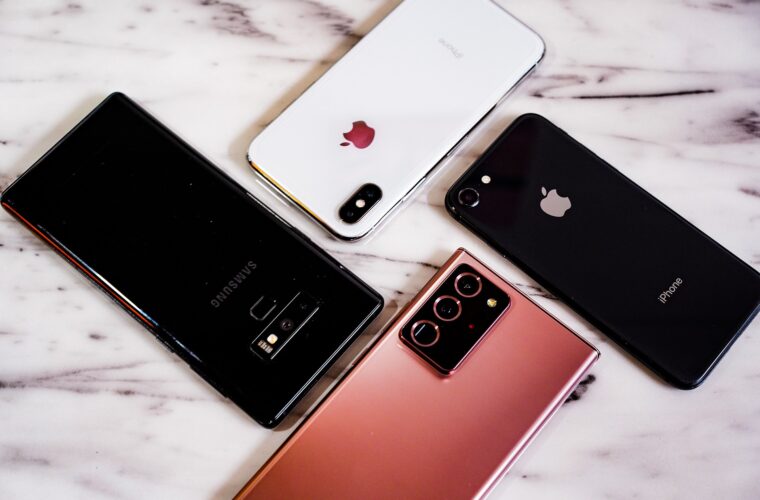Thanks to advances in generative artificial intelligence, the latest smartphones can do almost anything. They help write an email or text, synthesize documents, translate into multiple languages, and transcribe audio. Some can edit photos, removing distracting elements and creating filler contexts with some verisimilitude. AI on mobile devices brings with it two major consequences. The first is the risk of creating an even deeper furrow between top-of-the-line models, with built-in generative capabilities, and middle-range models, which will be relegated to objects capable only of benefiting from GenAI derived from third-party apps, from ChatGpt to Gemini and Copilot. Another consequence, looking precisely at the most expensive smartphones, is the flattening of functionality. For good marketing reasons, we can change the name many times to the editing option of a photo or the real-time translation of a phone call, but the result does not change.
Remember the One more thing with which Steve Jobs used to introduce Apple’s most anticipated product? In most cases, it was a device such as a new iPhone, iPod, Mac, or iPad. Today, however, we are facing a profound paradigm shift. Apple’s latest developers’ conference, which began on June 10 in Cupertino, was perhaps the clearest moment of this transformation at a difficult time for the group: on the one hand, there is the decline in iPhone sales, and on the other, there are threats from the European Union, which, according to some anonymous sources close to the Brussels antitrust authority, would like to ask Apple for a billion euros a day for violating EU competition rules.
Welcome to the jungle
The centrepiece of the presentation, in fact, was one of the most immaterial things ever thought of by the tech giants: Apple has entered the field of artificial intelligence with Apple Intelligence, a new approach to the world of AI that is more personal and more protected (the promise is that our data will not be shared with other companies or misused). Apple’s example represents a revolution that takes technology companies away from a device-centric approach- the race to the most innovative, most beautiful, fastest smartphone- to a more immaterial one, where software and the operating system become the real object of desire. It is certainly not just Apple following this path; historically, Cupertino arrives when the market is mature enough to be conquered.
There are several examples: in January, Samsung launched Galaxy AI, the new general artificial intelligence project that, starting with the new Galaxy S24s, will be available on all the South Korean group’s other devices. The same issue applies to Google and Microsoft – companies historically more tied to the software world and less to the product world – which, in the last year, since OpenAI invented a new market by presenting ChatGPT, have focused almost exclusively on AI: Google with the Gemini model and a series of services built around it, Microsoft with Copilot and with an $11 billion investment in OpenAI itself, with which it controls 49 per cent.
To understand how this revolution is happening, it is crucial to look at the numbers: this year, Google plans to spend $12 billion on artificial intelligence per quarter, and Meta just raised the money it plans to put into the industry by $10 billion in 2024, while Microsoft spent $14 billion last quarter and plans to increase this item “significantly.” This is not to say that the smartphone era has come to its end, as back in 2022 a lengthy article in The Verge explained, “Tech companies promised Alexa, Quest Pro, HoloLens, the metaverse and many other things that would eventually destroy the smartphone market,” reads the analysis, which points out that phones are still “the best thing we have.”

Smartphones are no longer the same objects they are
What is happening with the AI revolution could confirm this approach: the smartphone will remain, but it will no longer be the object of desire, which will be the service with which to access the best AI model. We will, in fact, have AI in our pockets, and we will certainly pay more attention to the service than the product. “We are moving into the era of smart smartphones, so we can say we are moving from smart to intelligent,” Nabila Popal, a researcher at International Data Corporation, told Cnet.
Another data point that shows how focused attention is on this revolution to an increasingly intangible sector is the poor results in sales of Ai Pin, Humane’s wearable device that was supposed to replace smartphones. The startup expected at least 100,000 orders and instead received only 10,000, another sign that if the software matters, the device on which the service is made to work is far less relevant than in the past. “We’re building AI for the rest of us,” Apple’s senior vice president of Software Engineering, Craig Federighi, said some weeks ago. And if subscribing to a service becomes the most important element, then Apple’s promise to defend our privacy and bring ChatGPT to all products at no extra cost – today, its Plus version costs $20 a month – would seem a very attractive way to retain consumers and win potential new ones.



